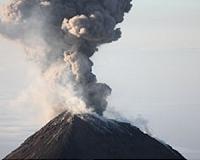| . |  |
. |
Singapore (AFP) Feb 6, 2011 Asia must prepare for millions of people to flee their homes to safer havens within countries and across borders as weather patterns become more extreme, the Asian Development Bank warns. A draft of an ADB report obtained by AFP over the weekend and confirmed by bank officials cautioned that failure to make preparations now for vast movements of people could lead to "humanitarian crises" in the coming decades. Governments are currently focused on mitigating climate change blamed for the weather changes, but the report said they should start laying down policies and mechanisms to deal with the projected population shifts. "What is clear is that Asia and the Pacific will be amongst the global regions most affected by the impacts of climate change," said the report entitled "Climate Change and Migration in Asia and the Pacific". "Such impacts include significant temperature increases, changing rainfall patterns, greater monsoon variability, sea-level rise, floods and more intense tropical cyclones," it said. The report, expected to be released in the next few weeks, comes as flooding overwhelms parts of Asia-Pacific, most recently in Australia, where a powerful cyclone worsened the impact of weeks of record inundations. "Asia and the Pacific is particularly vulnerable because of its high degree of exposure to environmental risks and high population density. As a result, it could experience population displacements of unprecedented scale in the next decades," said the report, primarily targeted at regional policymakers. Research carried out for the United Nations showed that 2010 was one of the worst years on record worldwide for natural disasters. Asians accounted for 89 percent of the 207 million people affected by disasters globally last year, according to the Belgium-based Centre for Research on the Epidemiology of Disasters (CRED). Summer floods and landslides in China caused an estimated $18 billion dollars in damage, while floods in Pakistan cost $9.5 billion dollars, CRED's annual study showed. Not to mention the catastrophic human cost. "Governments are not prepared and that is why ADB is conducting this project," said Bart Edes, director of the Manila-based lending institution's poverty reduction, gender and social development division. "There is no international cooperation mechanism established to manage climate-induced migration. Protection and assistance schemes to help manage that flow is opaque, poorly coordinated and scattered," he told AFP. "Policymakers need to take action now," he stressed, noting that negotiating treaties and efforts to raise funds takes time. Last year's natural disasters in the Asia-Pacific, including millions of people displaced in Sri Lanka and the Philippines, "give us a flavour of what to expect in the future", said Edes. "Migration in general is not being properly addressed and the situation is going be made worse," added Edes, referring to the additional impact of climate change on migration patterns, fuelled by economic needs and armed conflicts. "Now we have another driver of migration." The draft ADB report said the people forced to leave due to the extreme weather changes "have come to incarnate the human face of climate change" and while many of them will return home, many will be displaced permanently. Those expected to suffer the most will be the poor as they lack the means to easily pack up and leave for safer havens, the report said. "The issue of climate-induced migration will grow in magnitude and will take different forms," the report added, urging national governments and the global community to "urgently address this issue in a proactive manner." "Failure to do so could result in humanitarian crises with great social and economic costs," it warned.
Share This Article With Planet Earth
Related Links Climate Science News - Modeling, Mitigation Adaptation
 Man, Volcanoes And The Sun Have Influenced Europe's Climate Over Recent Centuries
Man, Volcanoes And The Sun Have Influenced Europe's Climate Over Recent CenturiesBarcelona, Spain (SPX) Jan 21, 2011 An International research team has discovered that seasonal temperatures in Europe, above all in winter, have been affected over the past 500 years by natural factors such as volcanic eruptions and solar activity, and by human activities such as the emission of greenhouse gases. The study, with Spanish involvement, could help us to better understand the dynamics of climate change. Up until ... read more |
|
| The content herein, unless otherwise known to be public domain, are Copyright 1995-2010 - SpaceDaily. AFP and UPI Wire Stories are copyright Agence France-Presse and United Press International. ESA Portal Reports are copyright European Space Agency. All NASA sourced material is public domain. Additional copyrights may apply in whole or part to other bona fide parties. Advertising does not imply endorsement,agreement or approval of any opinions, statements or information provided by SpaceDaily on any Web page published or hosted by SpaceDaily. Privacy Statement |